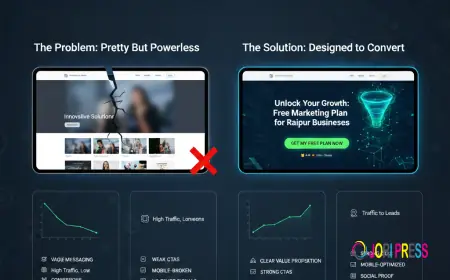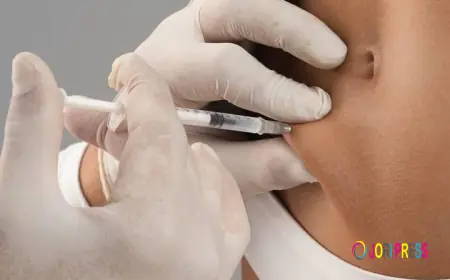The Intricate Dance of Life: A Guide to Managing an Egg Donor for Surrogacy

For many intended parents, the path to surrogacy often involves the use of a third-party egg donor.1 This is a profound and deeply personal decision that adds an additional layer of complexity to the already intricate process. The successful management of an egg donor is crucial for a smooth and ethical surrogacy journey, requiring careful coordination, transparent communication, and a deep understanding of the medical, legal, and emotional aspects. While the focus may be on the end goal of having a child, the journey is built on the compassionate and respectful management of all parties, including the donor. One of the common questions that arise in this context is cuanto cuesta donar ovulos, or how much it costs to donate eggs, which is a key part of the financial and ethical conversation. This article provides a comprehensive guide to managing an egg donor for surrogacy, from the initial selection to the post-donation process.
1. The Selection and Matching Process: Finding the Right Donor
The journey begins with the selection of an egg donor. This can be an emotional process, as intended parents are often looking for a donor with specific physical, intellectual, and personal traits. The selection process is typically facilitated by a reputable egg donor agency or a fertility clinic.2
-
Agency vs. Clinic: Egg donor agencies specialize in recruiting, screening, and matching donors, offering a wide database of profiles. Fertility clinics often have their own in-house donor programs. While agencies may offer a broader selection, clinics can provide a more integrated approach, managing both the donor and the intended parents' medical cycles.
-
Screening is Paramount: The most critical aspect of the selection process is the screening. A reputable agency or clinic will conduct extensive medical, genetic, and psychological screenings to ensure the donor is in excellent health and understands the emotional implications of her decision.3 The medical screening typically includes a full physical exam, blood tests for infectious diseases, and genetic testing. Psychological screening ensures the donor is a stable and reliable candidate.
-
The Financial Aspect: The question of cuanto cuesta donar ovulos is a significant part of the conversation. The donor receives financial compensation for her time, effort, and physical commitment. This compensation is a reimbursement for expenses and is not a "payment" for the eggs themselves, to uphold ethical standards. The cost can vary based on location, the donor's experience, and the specific agency or clinic. It's crucial for intended parents to have a transparent understanding of all costs associated with the donation, including agency fees, legal fees, and the donor's compensation.
2. Legal Framework: Protecting All Parties
Once a match is made, a comprehensive legal agreement is essential to protect the rights and responsibilities of all parties.4 This is where a specialized attorney comes in.
-
Independent Legal Counsel: Both the intended parents and the egg donor must have separate legal representation. This ensures that their individual interests are protected and that the agreement is fair and equitable.
-
The Egg Donation Agreement: The legal contract covers a wide range of topics, including the donor's compensation and expenses, the intended parents' legal rights to the eggs and any resulting children, and the confidentiality and anonymity of the arrangement. It should also address the disposition of any unused embryos.
-
Parental Rights: The legal agreement explicitly states that the egg donor has no parental rights or responsibilities to any children born from her donation. This is a key provision that provides legal clarity and security for the intended parents.
3. Medical and Cycle Management: A Coordinated Effort
The medical phase of the process requires meticulous coordination between the intended parents, the donor, and the medical team.
-
Synchronization of Cycles: The donor's cycle needs to be synchronized with the intended mother's or surrogate's cycle (or with the intended father's, if he is providing sperm). This is done through medication to prepare the donor's ovaries for egg retrieval.5
-
Donor's Medical Protocol: The donor undergoes a regimen of hormonal injections to stimulate her ovaries to produce multiple eggs.6 She is closely monitored through blood tests and ultrasounds to ensure she is responding well to the medication and to prevent any health risks, such as Ovarian Hyperstimulation Syndrome (OHSS).7
-
The Retrieval Procedure: The egg retrieval is a minimally invasive outpatient procedure performed under sedation. It is crucial for the intended parents and clinic staff to ensure the donor is comfortable and well-cared for before, during, and after the procedure.
4. Post-Donation Care and Communication
The donor's journey doesn't end with the retrieval. Post-donation care and communication are vital for a respectful and ethical process.
-
Follow-up Care: The clinic provides post-retrieval instructions and follow-up care to ensure the donor recovers without complications. It's important for the intended parents to be aware of and support this process.
-
Communication and Anonymity: The level of communication post-retrieval depends on the initial agreement. In anonymous donations, communication ceases after the legal and medical processes are complete. In open or known donations, a framework for future contact may be outlined in the legal agreement. The intended parents must respect the donor's wishes and the terms of the contract.
-
Acknowledging the Gift: While a donor is compensated, her act is a profound gift.8 Acknowledging this gift, whether through a thank-you note in a known donation or a respectful adherence to the legal agreement in an anonymous one, is a compassionate and ethical way to conclude the relationship.
In conclusion, managing an egg donor for surrogacy is a delicate and multi-faceted process. It requires a clear understanding of the legal and medical frameworks, a transparent approach to the financial aspects (including the question of cuanto cuesta donar ovulos), and, most importantly, a compassionate and respectful attitude towards the donor. By carefully navigating each step, intended parents can build a strong foundation for their family, while ensuring the entire journey is ethical, safe, and emotionally fulfilling for everyone involved.
What's Your Reaction?
 Like
0
Like
0
 Dislike
0
Dislike
0
 Love
0
Love
0
 Funny
0
Funny
0
 Angry
0
Angry
0
 Sad
0
Sad
0
 Wow
0
Wow
0














































